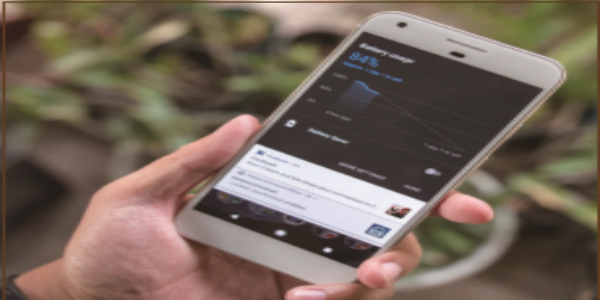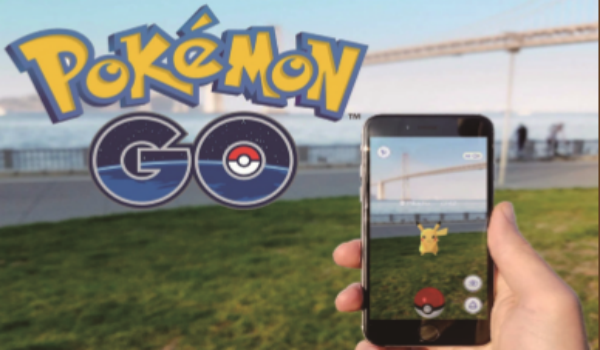As the Fourth Industrial Revolution has come, the worldwide rivalry for patent applications for new technology like Artificial Intelligence (AI) is growing. Major nations like the United States (US) are striving to protect the patents of their domestic industries and secure a share of the new market brought by the arising revolution. Korea, however, is lagging behind such leading countries and the future of the current patent war does not seem so bright. In this article, the Sungkyun Times (SKT) analyzes the two types of patent war, the efforts of the countries trying to obtain AI patents, the current state of Korea, and ways to go forward.
What is the Patent War?
According to the World Intellectual Property Organization (WIPO), a patent is an exclusive right granted for an invention, which is a product or a process that provides, in general, a new way of doing something, or offers a new technical solution to a problem. In other words, it protects intellectual property (IP), a crucial source of jobs and economic growth. There have been worldwide patent wars and they can be classified into two types: the conflict of whether there is an infringement on an existing patent and the competition for taking initiative in patent application for the technologies of the rising Fourth Industrial Revolution. In the instance of the first type, which is the conventional type of patent war, a corporation usually accuses another company, asserting that its patent has been infringed. For example, on April 6th, a Chinese court made a judgment that Samsung has to indemnify Huawei for patent infringement, paying $13.2 billion compensation. Huawei, the leading smartphone company in China, asserted that Samsung illegally used its patent for its user interface (UI), the channel for the interaction between user and computer. Huawei pointed out that Samsung infringed the patent of the UI, in particular pointing to the icon arrangement on the screen of Samsung mobile phones and tablets. Recent patent wars are closely related to the technologies of the Fourth Industrial Revolution. The advent of the revolution, which demands convergence between high technologies, boosted the worldwide competition for the securement of IP. Corporations of various countries are especially trying to procure AI patents, the field that the World Economic Forum (WEF) pointed out as being a promising technology that would change the world in the future. They are aiming to open new business markets using IP, while obtaining primary technologies and lifting the patent barrier. As an example, the smartphone AI market has the high potential of inducing the second kind of patent war. The competition in the smartphone market has recently been re-ignited as companies begin to apply AI technologies to their smartphone services. In particular, the struggle for the patent application for voice recognition patents is extremely aggressive. For example, Apple first introduced the personal voice assistant, ‘Siri’, in 2011 and since then, many other companies have been scrambling to establish their own voice recognition services. Corporations are still attempting to grab more patents for AI services and in order to successfully survive in this industry, Samsung and Google made a patent sharing agreement in 2014. According to the contract, the two enterprises share not only the existing patents, but also the patents that would be newly applied in the next ten years. Samsung shares its hardware and the smartphone device, while Google shares the software functionality like the operating system and services, specializing in different fields. Recently, their cooperation, however, is showing signs of breakdown. Samsung has started to develop its own AI voice service on its mobile phone and last year, Google introduced the smartphone ‘Pixel’ which possesses the AI function. This new movement has aroused tension between the two companies, as they began to invade each other’s fields. In addition, a clause in the patent sharing contract called ‘Non-compete agreement,’ which prevents Samsung from launching similar services to those that Google have already released, hindered Samsung’s attempt to release its own AI voice recognition service. Consequently, there is a high possibility that the two corporations are going to choose independent routes in the AI market.

Major Countries in the Patent War of the Fourth Industrial Revolution
Currently, many countries are focused on winning in the battle for the second type of patent war, where AI patents are especially gaining attention. The two major countries trying to hold the dominant position are the US and China.
The United States

The US is the country which possesses the most AI patents. It has applied for at least 15,000 international patens from between 2010 to 2014. International patents are the patents that have been applied for in domestic patent markets first and applied for in other countries later.
Since 2013, the White House has been leading a project called the BRAIN Initiative, Brain Research through Advancing Innovative Neurotechnologies, to push forward the basic study of AI. The government planned to invest $3 billion on the research, preparing for the Fourth Industrial Revolution and the information age by occupying brain science technologies.
China
The international AI patent applications of China have been dramatically increasing. The total number of patents was estimated at about 3,000 from between 2005 to 2009, but that number has actually tripled in the past five years. Considering the number of patents, China is expected to surpass Japan this year and the US in two years. As the policy had changed from ‘Made in China’ to ‘Created in China,’ many China corporations are endeavoring to establish their own patents. Additionally, the government selected AI as the primary national enterprise and is trying to promote the growth of the industry.
Korea
Unlike the US and China, Korea is facing a crisis in the battlefield of the patent war because it possesses very few technologies of the Fourth Industrial Revolution. In fact, compared to the US, China, and Japan, there is a long way to go for Korea to catch up with the countries in the AI patent market. The total number of patents applied for from 2010 to 2014 is only about a tenth of that of the US.
Reasons Why Korea is Lagging Behind in the Patent Industry
There are several reasons why Korea is at a standstill in the global patent industry of the Fourth Industrial Revolution. One of the main reasons may be that there are fewer technologies for patent application. There are, however, other institutional or cognitional reasons.
Absence of IP Control Tower
In Korea, tasks related to IP are distributed to different ministries. The Korean Intellectual Property Office (KIPO) deals with patents, brands, and designs, the Ministry of Culture, Sports and Tourism arranges copyright, and the Ministry of Agriculture, Food and Rural Affairs manages geographic indication. Experts analyze that it is difficult to respond flexibly and efficiently to changing circumstances due to the absence of a centralized control tower. For example, infringement of patented software via Compact Disc (CD) or Universal Serial Bus (USB) are protected, while leakage through online methods cannot be protected. The government tried to amend the patent law four times between 2005 and 2014, but was miscarried because of conflicts between ministries. The Ministry of Culture, Sports and Tourism, which was opposed to the revision, argued that the reinforcement of the law would impede the development of the software industry because software is developed by applying external ideas. On the other hand, KIPO, insisted that introducing an effective method to protect the emerging technologies is imperative since the significance of software has increased. Other people are concerned that decentralized IP tasks hinders the emergence of fusion of technologies between diverse fields. For example, Pokemon GO, a game which has drawn huge popularity, was made by demolishing the walls of IPs and patents. The mobile game combined copyright and patent, as the characters are protected by copyright and the Augmented Reality (AR) technique is protected by a patent.

Lack of Number and Competency of Patent Judges
Compared to other advanced nations, in terms of obtaining new patents, there are very few patent judges in Korea. A single person manages approximately 221 patents every year, which is around three times more than that of the US and four times that of Europe. Few examiners may lead to the degradation of the quality of judgment. In fact, it is difficult to guarantee the quality and the speed of judgment, as the speed decreases if the judges emphasize the quality.
Perception Issues and Lack of Protection by the Policy
According to the WEF, in 2016, the IP protection environment of Korea ranked 49th in the world. Although people know that IP is the right and property of patent holders, still many people are not acknowledging the value of patent technologies, which leads to the difficulty of gaining funds or assistance when founding a business utilizing new technologies and IPs. Consequently, domestic companies are showing passive behavior toward new technologies of AI and do not have much motivation to develop
creative technologies. According to a survey conducted by EY, a global accounting firm, only 10% of Korean corporations answered that they are going to invest in AI in the following two years, which is 6% lower than that of the world average. Furthermore, a small amount of compensation hinders the spread of perception that patents are important and they should be protected from infringement.
Ways to Go Forward
Implementation of Centralized IP Administration System
In order to effectively respond and change in the era of the new revolution, it is desirable for the Korean government to integrate the tasks related to IP and enhance efficiency and flexibility in responding to changing circumstances. In fact, the United States Patent and Trademark Office (USPTO) manage both patent and copyright issues, and the IP office of England and the WIPO also handles both. Moreover, after implementing a centralized IP administration system, there should be a revision of the patent law. Like the US, Europe, Japan, and many other countries, Korean patent law should be amended to protect SW patents online.
Enhancement of the Competency of Patent Judges
The capability of patent judges should be reinforced to quickly and precisely create patents. According to the KIPO’s 2017 plan, it also recognizes the significance of increasing the capability of patent judgments. It is planning to systematize the training program of the judges, classifying the professional education according to each examiner’s level. Moreover, the education for new technologies like virtual reality should be enhanced and in order to provide high quality examination on patents the number of judges would need to be increased and each examiner would be able to judge fewer patents.
Increased Protection of IP
The government should take active measure to prohibit the manufacture of counterfeit products. As the infringement of IP and patents mostly occurs in China, the government should actively trace the producers of fake goods. Moreover, a few months ago, the KIPO announced that in 2017, the government would prepare for the Fourth Industrial Revolution by defining the meaning of ‘idea.’ The government is not only going to include ideas on patent or trademark, but it is also going to include the ideas that arise from business, business relations, and contest exhibits into the range of IP, in order to protect those, too.
In order to gain a competitive edge in the Fourth Industrial Revolution, it is important to use new technologies like AI and patents that make it easier for countries to secure a share of the new arising market. There is, however, a long way for Korea to go to catch up with the leading countries in the patent war. To reach this goal, the perceptions toward IP and patenting must change in the first place.
